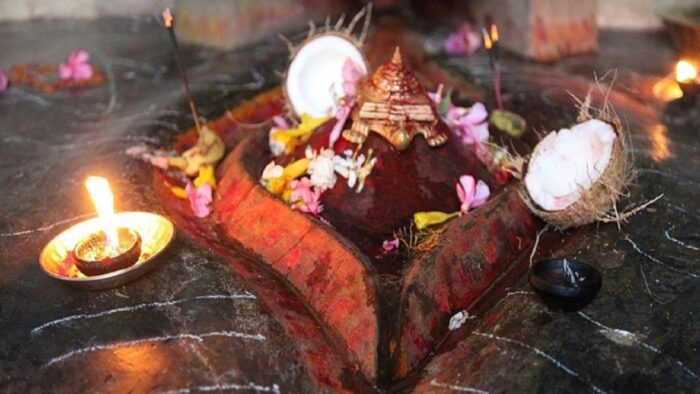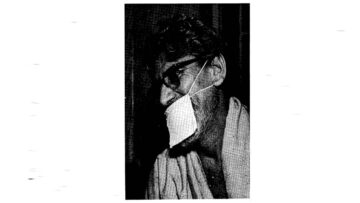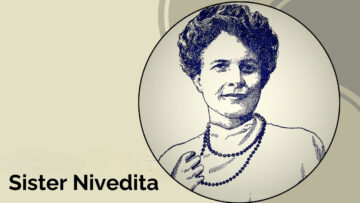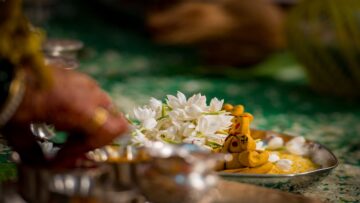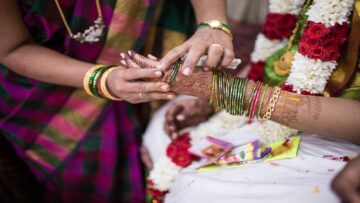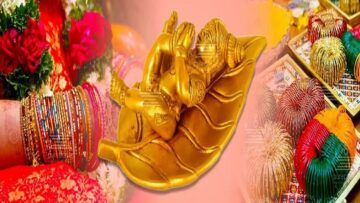Rajaswāla Niyamā (protocol during menstruation) for securing good health for women
We had discussed the time related to maithuna earlier, time alone will not be sufficient to lead a healthy life and to procreate healthy individuals. Special care must be given to health and especially for females’ health. PCOS and other ailments that trouble the female population have increased in the recent past. The techniques that have been adopted by our Śāstras have been neglected and it is important to revive essential customs like ‘oil bath’ which is quite significant for a female’s health. The related healthcare points have also been covered.
GṛhaLakṣmīs, our nation’s backbone
(Gṛha = Home, Lakṣmī = Lakṣmī Devī, the women of the household are referred to as ‘GṛhaLakṣmīs’ in our culture.)
The developed countries may have lots of industries, billionaires, tourist locations but they are significantly at a disadvantage when it comes to things like our country’s spirituality, the magnanimous attitude of our people, lower crime rates, and harmony among a remarkably diverse population.
The reason for Bhārata being a spiritual powerhouse is because of the way we treat our women. Other countries must envy our Bhārata when it comes to our emphasis on inclusivity of everyone, or every creature, I mean every Ātma.
Is there a loftier way to address women with a term other than “GṛhaLakṣmī”? As long as any GṛhaLakṣmī suffers in any way, every other household member gets cursed by Devatās. This is of utmost importance.[1]
भ्राता ज्येष्ठः समः पित्रा भार्या पुत्रः स्वका तनुः॥ Manu Smṛtiḥ 4/184
“The elder brother is equivalent to the father; one’s own wife and children should be considered as one’s own body.”
पितृभिर्भ्रातृभिश्चैताः पतिभिर्देवरैस्तथा ।
पूज्या भूषयितव्याश्च बहुकल्याणमीप्सुभिः ॥ Manu Smṛtiḥ 3/55
“Fathers, brothers, husbands, brothers-in-law, whatever role a man holds must respect and appreciate the females in their families to have an everlasting happiness.”
Note these points where the Śāstra mentions that one must consider the spouse’s body as one’s own, our impartial Ṛṣis who have had families and written many Śāstric texts always given their due consideration for many situations and there is a rationale behind them.
Considering that our Ṛṣis knew cosmetic surgeries centuries ago, would it not be strange to think that they were chauvinistic or superstitious or illiterate?
Now, let us discuss the menstruation protocol given by our Ṛṣis.
Menses protocol
ततःपुष्पात्प्रभृति त्रिरात्रमासीत ब्रह्मचारिण्यधःशायिनी, पाणिभ्यामन्नमजर्जरपात्राद्भुञ्जाना न च काञ्चिन्मृजामापद्येत। ततश्चतुर्थेऽहन्येनामुत्साद्य सशिरस्कं स्नापयित्वा शुक्लानिवासांस्याच्छादयेत् पुरुषं च।॥५॥ Caraka Samhitā Sārira Sthāna 8.5
“Regulations for a woman while in menses –
Abstinence from maithuna for the initial four days from the commencement of menstrual bleeding. Sleeping on the ground over some Kuśa grass, eating from a vessel that is not broken and avoid taking a head bath.”
A sponge bath or a partial cleansing of the body parts is advisable instead of a whole-body bath since the body temperature has fluctuations during menstruation.
Foods like curd, sesame seeds, horse gram, and foods that are heavy to digest are contraindicated. (Buttermilk can be consumed instead of curd.)
The woman is advised to sleep on a bed made with Kuśa grass or she shall sleep in a bed which is not shared by others. The bedsheet is to be washed after the third menstrual bleeding day.
Eating from broken or damaged utensils or sharing the utensils that she uses with others. It is ideal to avoid sharing the same beverages or edibles that are being used or consumed by the menstruating woman with others.[2] It is advisable to keep a separate set of vessels to use while menstruating and to avoid cooking till the bleeding stops. (The husband or mother-in-law or the other family members must cook for her taking special consideration about her condition. Havishyā – a meal made with Sāli rice, ghee, and milk are especially recommended during menstruation. Outside or hotel food must be the last resort.)
Cosmetics have been mentioned in the contraindicated things during menstruation, one must ponder about the effects of Endocrine Disruptor Chemicals[3] present in the available chemical-based cosmetics in the market. (Please read about this online from open sources for a better understanding.)
The other restrictions are covered in the table that is elaborated below and the other contents (that are repetitive) have been previously discussed.
We are about to view some contents which may seem quite disturbing for those who have lesser exposure to our Śāstras but these Śāstras have been suggested to warn us to keep us away from these practices, Guṇopasaṃhāra Nyāya must be applied here. An immediate conclusion must not be made by reading the consequences that are mentioned in the table. Many firewalls are kept by the Śāstras to reduce or nullify any negative impacts on us. At the same time, there are similar consequences mentioned for other wrongdoings that we commit. Perhaps, our Avyāja Karuṇāmūrti (Bhagavān who is described here as the epitome of enormous compassion) forgives and reduces the harmful effects by our sincere daily prayers.[4]
At the same time, Prāyaścitta Karmas are suggested for many of our daily activities subtly for our welfare.
Note – The mentioned consequence may not be the direct result of not following the prescribed regulation. For example, a child getting a skin disease need not be the direct consequence of the mother applying oil during her menses, multiple reasons are also needed for skin disease to manifest in the child. Likewise, this applies to the other regulations mentioned in the table and for all the other wrongdoings mentioned in the Śāstras. But following these as much as possible is ideal. Prāyaścitta Karmas must be done compulsorily if the situation is not favourable in following the Śāstras. The contents have been particularly shown to ensure that individuals or their parents are not taunted or mocked by deliberate misinterpretation of the table. An accusation must not be made by blaming the mother for any of the mentioned consequences.
Āśaucaṃ for menses is only for the first three days, though cooking and other Devata activities are recommended only once the bleeding stops.
Do’s and don’ts during menstruation for procreating a healthy progeny –
ऋतौप्रथमदिवसात्प्रभृति ब्रह्मचारिण किंकारणम्? दिवास्वपन्त्याःस्वापशीलः, अञ्जनादन्धः, रोदनाद् विकृतदृष्टिः, स्नानानुलेपनात् दुःखशीलः, तैलाभ्यङ्गात् कुष्ठी, नखापकर्तनात् कुनखी, प्रधावनात् चञ्चलः, हसनात् श्यावदन्तौष्ठतालुजिह्वः, प्रलापी च अतिकथनात्, अतिशब्दश्रवणात् बधिरः, अवलेखनात् खलतिः, मारुतायाससेवनात् उन्मत्तो गर्भोभवतीत्येवमेतान् परिहरेत्॥ Suśruta Samhitā. Sārira Sthāna 2/24-25[5]
Regulations while having menses and their consequences if not followed –
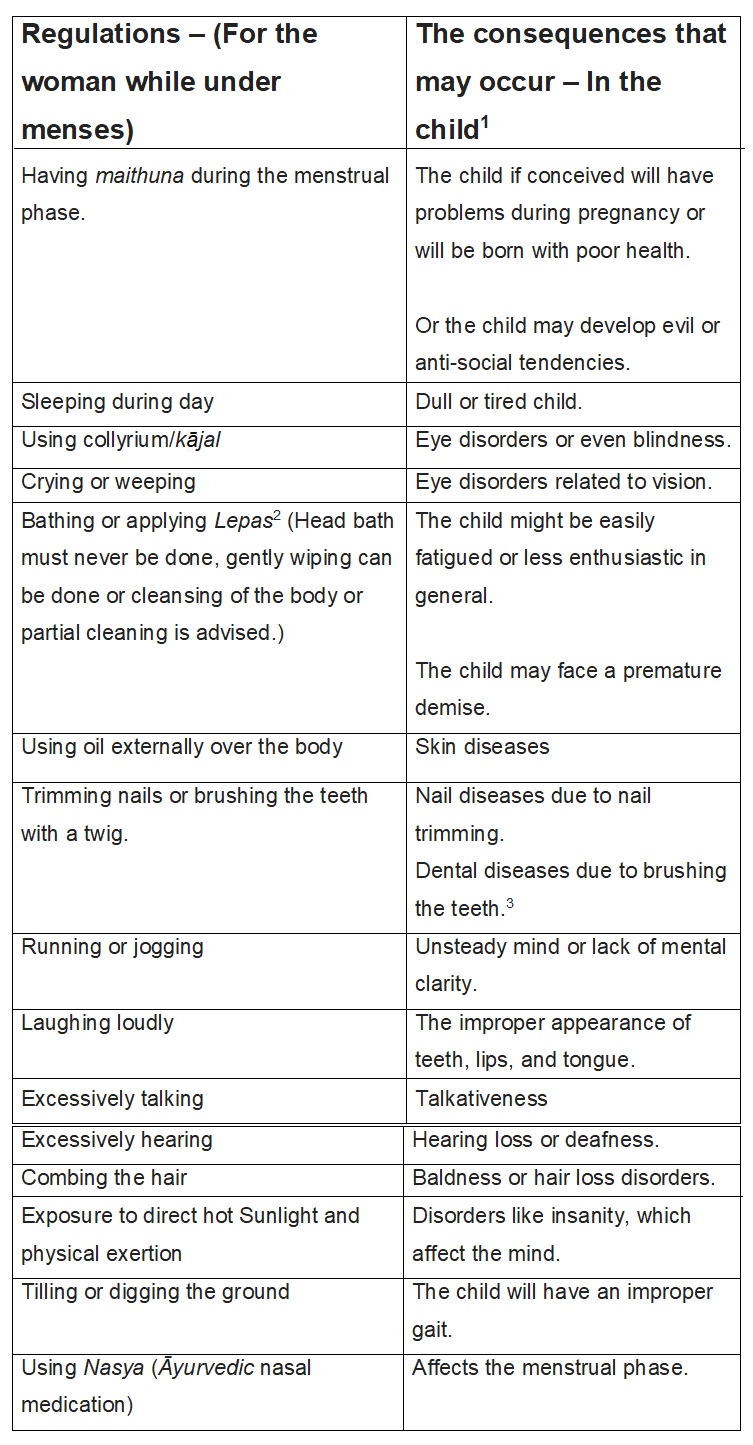
The health aspects for menstruation as per our Śāstras
We celebrate International Yoga Day; we have awareness about Yogāsanas but not entirely about Yoga.[9] There are eight divisions of Yoga[10], the first two are quite important. Yama and Niyama are both a set of regulations given for improving one’s health.
Brahmacarya under Yama and Śauca (hygiene and gentle conduct) under Niyama are linked with this menstruation protocol, these are quite important.
Śukra has been discussed, this term is used for both men and women’s body functions. ‘Artava’ is the term used for describing the female’s blood related to the uterus and ovum, this Artava is closely associated with one’s nourishment and special emphasis has been on menstruation concerning health. (Rajas is the term used for menstrual blood.)
The five Kośas –
The menses is not just related to the female’s uterus, a human being is said to have five layers/Kośas.[11] The first Kośa is said to be the Annamaya Kośa (the layer formed with the consumption of food), the food that is consumed nourishes this layer and this, in turn, influences the next successive layer –Prāṇamaya Kośa – the layer related to the breath. E.g., If one consumes a heavy meal before trying some breathing exercise, it is not possible to do some breathing exercise since the Prāṇamaya Kośa is influenced by the Anna (food) consumed. The consecutive layers are said to be related to the mind, knowledge, and happiness respectively. A similar mechanism is in play by which the Kośas get influenced. Even the Manomaya Kośa can affect the Annamaya Kośa, e.g., if one is upset over something, either the person may not consume anything or may overeat due to stress.
Hormones, mood swings, and other bodily changes have been recognized today. Still, a few nuances from our traditional sciences will also broaden our scope of scientific development.
The eight vigorous activities that are to be avoided –
Āyurveda mentions the avoidance of eight vigorous activities[12] when any person’s body is undergoing any major physiological (functional) changes.
The eight vigorous activities include –
- Talking loudly or excessively.
- Long-distance travelling.
- Walking in excess.
- Sitting for longer durations at a stretch.
- Eating before the digestion of the previous meal. (Usually, a minimum gap of 4 hours is advised after a heavy meal.)
- Having an unhealthy meal.
- Sleeping during the daytime.
- Having sexual intercourse.
The ill-effects of not adhering to these eight regulations and their management have been explained in the footnote. These eight activities are very much applicable in menstruation time and essential to ensure good health. (Further reading of footnotes 10, 11, and 12 is necessary to get a better understanding.)
The following verse highlights and emphasizes avoiding the proximity of women during her menses.
तां विवर्जयतस्तस्य रजसा समभिप्लुताम् ।
प्रज्ञा तेजो बलं चक्षुरायुश्चैव प्रवर्धते ॥ Manu Smṛtiḥ 4/42
The husband who avoids the proximity of his wife (while under menses) gains intellect, splendour, strength, good sight, and a long life span. The same verse is applicable for any person in general especially the husband and applies in other Āśauca times also (to those who have Āśauca). This protocol bestows good benefits for everyone involved.
Oil bath after the menstrual phase[13]
Where?
Oil application must be done over the entire body if the oil cannot be applied over the entire body; bare minimum, application over the head, ears, and feet is necessary. Initially, application of oil over the head and face is advised then application in other parts is recommended. Do not use the oil (for the head) that has remained after applying over the other body parts. The oil can be applied over the soles (of the feet) but must be done carefully.
Contraindications for the oil bath
Usually, the application of oil (in large amounts) is contraindicated when one is having a common cold (severe ones), severe indigestion, severe bleeding (for more than a week), any underlying infection or fever, and living in extremely cold regions.
Applying warm oil always bestows strength but when one is affected with upper respiratory tract infections like the common cold, there will be a discomfort in having the oil applied over the body. This oil application differs from region to region, and it is advisable to get an expert opinion if needed.
In most of the scenarios, one will be able to ascertain their physical strength. In cases where an oil bath seems exceedingly difficult, even a drop of oil when applied to the body before having a warm water bath will suffice and a gentle sprinkling (Prokṣaṇa) of water over the head avoiding head bath is advised by the Śāstras[14].
When?
During Saṅgava Kāla.[15] This is to be done after brushing one’s teeth and evacuating bowels and, avoid consuming any eatables. An oil bath should be had only when the bleeding stops (but only from the 5th day, not before that) whereas the warm water bath is advised on the 4th day (from the commencement of menses) after sunrise.
It is always better to take an oil bath after the commencement of Saṅgava Kāla. If this is not possible, take an oil bath after sunrise (during Prātaḥ Kāla). But do this only when it is necessary. At other times, always stick to Saṅgava Kāla time.
It is beneficial to postpone the oil bath as late as possible in the first 2 hours and 24 mins after Sunrise (Prātaḥ Kāla).
Diwāli is the only exception to this rule, oil application and warm water bath are prescribed before sunrise only on that specific day. Always avoid any oil application before Sunrise.
How to apply the oil? (All these have been taken from current day Āyurveda techniques.)
The oil must be heated indirectly over some boiling/boiled water[16] by keeping a vessel containing the oil or, any vessel can be heated beforehand then oil must be poured into the heated vessel. Whichever method is convenient can be chosen. Kindly refrain from using plastic containers, aluminium and its alloys for heating the oil. When the oil has become warm, it can be applied over the body. Applying the oil without heating it will not have the desired effect. (Only a few medicated oils need not be heated before application.)
How long should the oil stay over the skin?
The oil that has been applied must be allowed to stay for a minimum of 15-24 minutes till 48 minutes and she must avoid staying in a room while the fan is running at a high speed or Air Conditioner/Cooler turned on, or when chilly winds or strong sea breeze pass through the room. (Fan or AC must be switched off or must be kept at a minimal speed but mild cross-ventilation without winds is allowed.)
This depends on the person, the applied oil can be allowed to remain over the skin based on one’s comfort (if the person feels uneasy even after 5 mins, the warm water bath can be done).
Why warm water must be used after oil application?
The bath must be taken only with warm water. Otherwise, a common cold or a fever or any pain can occur. Even the oil must be warm while applying; otherwise, it will not have much potency. Cold temperatures of the bathing water cause vasoconstriction (tightening of the blood vessels; causes discomfort) and thus, it is ideal to use warm water only.
Will warm water affect the scalp?
Yes, it may. When some oil is applied in advance and the duration of exposure to warm water is short, the scalp will not be affected significantly. It is ideal to shower with warm water (or lukewarm water) gently over the head, chest, and genitalia carefully only for a short duration unless stated otherwise by your physician.
The temperature of the water over these areas must be milder and warm water exposure duration must be shorter compared to other body parts.
Fourth-day protocol
पूर्वं पश्येदृतुस्नाता यादृशं नरमङ्गना।
तादृशं जनयेत् पुत्रं भर्तारं दर्शयेत् ततः॥ Suśruta Samhitā, Sārira Sthāna 2/26॥
“If the lady has not conceived even once, then she must avoid seeing anyone other than her husband after her bath.”
This is to be done after bathing with warm water on the 4th day. Then the above-mentioned śloka can be adhered to.
This is needed only when trying for conceiving a child. At other times, it is not necessary to look at the husband first.
This is especially important here as the Śāstra mentions that her child when conceived during the post-menses stage may imbibe the qualities of the person she sees first after her warm water bath. (This is also one among the many factors, but this does not influence the conception entirely.)
Note – Maithuna is advised only after the cessation of bleeding on the night after having the oil bath.
Conclusion
Merely trying to avoid or remove something will not resolve any problem. For managing acute appendicitis[17], a surgeon will surgically remove the appendix. The same cannot be done for a headache; removal of the head is not the solution. Likewise, Śāstras cannot be overlooked or scrapped to resolve our problems (an assumption has been made today as if Śāstras are the root cause of our problems), we must know what is in our Śāstras to acknowledge and rectify our problems. Ṛṣis are very compassionate; they have laid down all these regulations only to ensure good progress in our materialistic and spiritual well-being.
आप्तास्तावत्- रजस्तमोभ्यां निर्मुक्तास्तपोज्ञानबलेन ये। येषां त्रिकालममलं ज्ञानमव्याहतं सदा॥१८॥
आप्ताः शिष्टा विबुद्धास्ते तेषां वाक्यमसंशयम्। सत्यं, वक्ष्यन्ति ते कस्मादसत्यं नीरजस्तमाः ॥१९॥[18]
Ṛṣis are said to be free from the impurities of the mind without having any hidden motives and knowers of Trikāla (past, present and future), their words must be taken as the final mandate. The things or matters that are perceivable or comprehendible are very less compared to the ocean of the unknown matters and it is wiser for us to follow the words of our Ṛṣis.[19]
A happy family lays down the foundation for a happy nation.
सन्तुष्टो भार्यया भर्ता भर्त्रा भार्या तथैव च ।
यस्मिन्नेव कुले नित्यं कल्याणं तत्र वै ध्रुवम् ॥ Manu Smṛtiḥ 3/60 ॥
“In the family where both the husband and wife are satisfied with each other, prosperity and family will be everlasting.” This verse refers not only to the pleasures but to the other aspects of the relationship as well.
From Ṛṣis of the ancient times to the successful personalities of the current era, the harmony between the husband and wife is very evident.
Pursuing happiness should be our goal and can there be better happiness by creating a generation better than us?
Aṣṭāṅga Hṛdayam[20] mentions that an unsteady walk, gibberish speech, body soiled with dust, drooling mouth though these do not appear attractive, yet a child (having these traits) captivates the heart of everyone including the parents with the special sight and touch. There can be no parallel in enhancing one’s fame, Dharma, reputation, prosperity than a healthy and happy child.
For experiencing this happiness and joy, one must be conversant with the traditional sciences also to know the correct concept of maithuna and related Śāstras to improve our probability of ensuring good health and getting a good progeny.
लोका: समस्ता: सुखिनो भवन्तु।
Lokā: Samastā: Sukhino Bhavantu.
[1]यत्र नार्यस्तु पूज्यन्ते रमन्ते तत्र देवताः । यत्रैतास्तु न पूज्यन्ते सर्वास्तत्राफलाः क्रियाः॥ Manu Smṛtiḥ 3/56॥
[2]Āśaucaṃ = “A specific duration of isolation” that includes the period of death of a relative, birth of an infant, menstruation, etc. Anyone having any kind of Āśaucaṃ must avoid sharing edibles or offer the food cooked by them to others. A person who is not having Āśaucaṃ also gets this by consuming such edibles. Empathy is also an integral part of our scriptures. Following the menses protocol is very much essential for the lady’s spiritual upliftment and everyone must cooperate with their best efforts for her Ādhyātmic welfare.
[3] Endocrine disruptor chemicals are the chemicals that disturb the balance of the body’s normal functions that are normally handled by the endocrine system.
[4] अपराधसहस्त्राणि क्रियन्तेऽहर्निशं मया। दासोऽयमिति मां मत्वा क्षमस्व परमेश्वरि।।१।। Devī Kṣamā Prārthanā Aparādha Stotram
[5]Vedic quote – Kṛṣṇa Yajurveda Taittirīya Saṃhitā, 2 Kāṇḍaḥ, 5 Praśnaḥ, 1 Anuvāka has similar mentions.
[6]The second mentioned sentence is from Footnote 5 and mostly, both the Suśruta Samhitā and footnote 5 mention the same effect in most of the cases.
[7] Lepa is like a paste made with herbal or mineral ingredients. Lepa for cosmetic purposes are to be avoided but for medicinal uses, it is not restricted.
[8]Soft bristles or a compatible toothbrush with toothpaste or, any tooth powder or salt with the middle finger can be used for brushing. Do not use the index finger. (Strength given will be greater than required and the index finger also known as Bṛhaspati Tarjanī has a special Śāstric significance and thus to be avoided for brushing the teeth.)
[9] Yoga (literally can be explained as synergy or union) is a means for improving oneself and does not focus only on the physical development of the body.
[10]Yama, Niyama, Āsana, Prāṇāyāma, Pratyāhāra, Dhāraṇa, Dhyāna and Samādhi.
[11]Taittirīya Upanishad 2/1-5 – Annamaya, Prāṇamaya, Manomaya, Vijñānamaya and
Ānandamaya Kośas. Other details regarding this are also explained elaborately in this Upanishad.
[12]Caraka Samhitā. Siddhi Sthāna. 12/10-12
[13] Must be done on the 5th day or when the bleeding stops. A warm water bath is advised on the 4th day from the commencement of bleeding, but an oil bath is advised only when the bleeding ceases.
[14]अशक्तावशिरस्कं वा स्नानमस्य विधीयते ।आर्द्रेण वाससा वाऽथ मार्जनं कापिलं स्मृतम् ॥
Kūrma Purāṇam Uttarabhāgaḥ, 18/10
[15] The first 2 hours and 24 mins after Sunrise = Prātaḥ Kāla.
The second slot of 2 hours and 24 mins = Saṅgava Kāla.
[16]Do not directly heat the vessel containing oil. The water can be heated sufficiently to provide warmth to the oil kept in a vessel. Use any oil which is suitable for your region where you reside or according to your skin. In India, usually, gingelly or coconut oil is used but varies from area to area.
[17] A condition where the appendix gets severely and suddenly inflamed.
[18] CarakaSamhitā.Sutra Sthāna.11/18
[19] CarakaSamhitā.Sutra Sthāna.11/7
[20] An important book that is studied for understanding Āyurveda. Aṣṭāṅgahṛdayam Uttarasthānam 40/10-11
Feature Image credit: Pinterest
Disclaimer: The opinions expressed in this article belong to the author. Indic Today is neither responsible nor liable for the accuracy, completeness, suitability, or validity of any information in the article.

